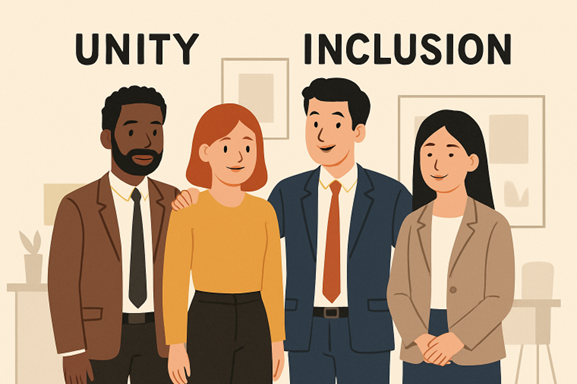Discrimination in the workplace erodes trust, diminishes morale, and negatively affects both employee well-being and organizational performance. Effectively addressing this complex issue requires comprehensive policies, strong leadership, and a genuine commitment to equity at all levels of society. Taking concrete steps to prevent and respond to discrimination is essential for creating a safe and supportive environment. If you’re facing workplace unfairness, consulting knowledgeable Colorado Springs attorneys for employment disputes can be an important resource as you weigh your options.
A discrimination-free workplace cultivates higher engagement, innovation, and loyalty. Employers must be proactive in outlining clear expectations, acting promptly when violations occur, and fostering open communication about challenges that arise. Employees play a crucial role in upholding these values and should feel empowered to contribute to a fair and inclusive organization for all.
The ongoing work of preventing discrimination is both an ethical responsibility and a legal mandate. Addressing both overt and subtle discrimination fosters mutual respect, stronger teams, and sustained growth. Companies that value inclusion and equity protect themselves from legal action and enhance their reputation in the marketplace.
Unaddressed discrimination can have far-reaching impacts on career advancement, mental health, and organizational reputation. Ongoing vigilance ensures all individuals are respected and given equal opportunities to succeed.
Establish Clear Anti-Discrimination Policies
Building a respectful and safe working environment begins with establishing detailed anti-discrimination policies. These should define what constitutes discrimination and harassment, outline clear reporting procedures, and specify disciplinary actions for violations. Making these policies widely available and easily understood—through orientation sessions, employee handbooks, and regular reminders—ensures everyone knows their rights and responsibilities.
Anti-discrimination policies must reflect current federal, state, and local laws. Regular reviews and updates, particularly when the law changes or major court cases set new precedents, help organizations stay compliant and relevant. Transparent enforcement is key; favoritism or inconsistency in applying rules undermines trust and effectiveness. For further guidance on building effective policies, the Society for Human Resource Management (SHRM) offers sample employee handbooks and best practices.
Provide Regular Training on Unconscious Bias
Unconscious bias training is essential for addressing the subtle prejudices that influence hiring, promotions, and everyday interactions. Effective training extends beyond one-time seminars; it involves continuous education that features real-life scenarios, role-playing, and follow-up activities. Quality programs encourage employees to examine their own assumptions and understand the impact of their behaviors on colleagues.
Employers that invest in ongoing learning signal that addressing bias is a long-term commitment, not a box-checking exercise. Studies published by Forbes demonstrate that consistent, interactive bias training can shift workplace culture and boost inclusivity, ultimately reducing incidents of discrimination.
Implement Transparent Reporting Mechanisms
Safe, accessible, and confidential reporting channels are crucial in empowering employees to come forward. Organizations should offer multiple avenues—such as online portals, hotlines, and dedicated HR contacts—so individuals can choose what feels safest. Employees must be assured that their complaints will be treated seriously, investigated impartially, and resolved promptly, with protection against retaliation for those who speak up.
Transparency enhances trust: regularly sharing aggregated and anonymized data on discrimination investigations and outcomes demonstrates accountability and signals ongoing commitment. Empowering employees through clear guidance on reporting, investigative steps, and follow-up ensures issues are resolved and not left to escalate.
Foster an Inclusive Organizational Culture
Diversity and inclusion must be woven into the fabric of the organization, championed from the top down by senior leaders. Celebrating cultural heritage months, supporting employee resource groups, and incorporating diverse voices into decision-making processes sends a strong message that everyone belongs. Management’s responsiveness to concerns—through regular town halls, transparent communication, and equitable opportunities—proves that inclusion is more than a slogan.
Organizations that live by these values experience higher employee engagement, creativity, and satisfaction, which in turn fuels their reputation and retention. Initiatives that recognize unique perspectives while creating a sense of unity can significantly reduce the risk of discrimination and related conflicts.
Monitor and Address Workplace Behavior Proactively
Proactive monitoring through climate surveys, exit interviews, and informal feedback helps organizations identify and address “hidden” problems, such as microaggressions or patterns of exclusion. Addressing these issues early—before they escalate into formal complaints—demonstrates a strong commitment to respect and equity.
Holding all employees accountable to standards of conduct, including management, reinforces that respectful behavior is expected universally. Training managers to spot early warning signs—and equipping them to intervene—sustains a positive environment. The Harvard Business Review provides valuable guidance on establishing systems for proactive monitoring and intervention.
Engage in Open Dialogue
Creating regular opportunities for open discussion about diversity, equity, and discrimination enables employees to express their concerns, share their experiences, and foster a deeper understanding. Anonymous Q&A forums, facilitated group conversations, and diversity panels would allow employees to learn from one another and foster empathy across teams.
Active listening is vital: leaders and HR professionals should encourage honest feedback while being receptive to critique. Effective dialogue fosters a trusting environment where potential issues are addressed before they become pervasive, enabling companies to adapt their policies and practices to meet the evolving needs of their employees.
Seek Legal Advice When Necessary
When internal remedies fail or when situations appear legally complex, consulting with an employment attorney may be necessary to protect employee rights and organizational integrity. Legal counsel can clarify the best path forward, from mediation to litigation, ensuring compliance with applicable laws and regulations.
Leveraging legal expertise can not only resolve individual cases but also prompt organizational improvements in policy and practice, reducing future risk. Employees and employers alike benefit from clear guidance during these challenging situations.
Conclusion
Addressing workplace discrimination demands ongoing vigilance, comprehensive policies, and a deep commitment to inclusion. Promoting open dialogue, providing training, and acting swiftly on complaints lay the groundwork for a healthy and equitable work environment. Organizations that prioritize respect and equity ensure the well-being of their employees while strengthening their overall success.
